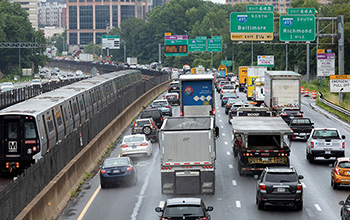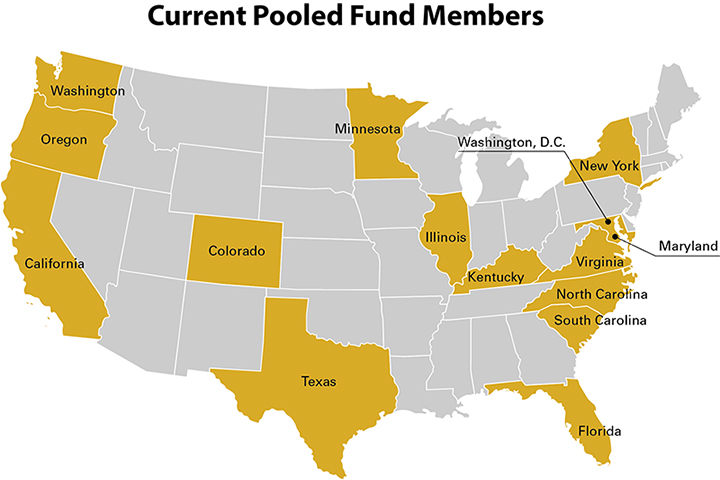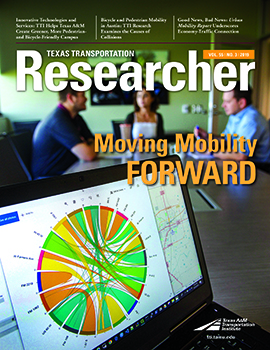For over 35 years, the Texas A&M Transportation Institute’s (TTI’s) urban mobility research efforts have developed a comprehensive set of performance measures and tools to measure and monitor mobility conditions in urban America. The Texas Department of Transportation (TxDOT) was the founder and sponsor of the research and initial implementation of the tools developed from it. For the last 21 years, a pooled fund study involving a combination of state departments of transportation (DOTs), metropolitan planning organizations and the Federal Highway Administration has continued to support and enhance this work. The analysis procedures and resulting measures have been used in multimodal measurement in many U.S. urban areas, at the state level, and in other countries.

“The pooled fund effort ensures that the analysis procedures and congestion strategies continue to evolve and help agencies be current and relevant with their performance measures and the datasets powering them,” says Casey Dusza, TxDOT statewide planning branch manager. “This information allows agencies to communicate effectively with their traveling public.”
Since our transportation system and available data sources are always changing, the study has transitioned several times. “As we understand more, we are extending the study to develop and test measures of system reliability, system resiliency, freight throughput, multimodal analyses and related areas,” explains TTI Senior Research Engineer Bill Eisele. “We’ll be expanding our look at how to transform big-data sets into knowledge and communication elements that decision makers can use.”
For example, TTI has independently evaluated vendors’ mobility data so the DOTs know when and where to use specific kinds of data for various scenarios and problems. Which data you use depend on the problem you’re trying to solve.
To address evolving requirements for multimodal performance, researchers are looking at performance measures and improving “what-if” scenario tools and visualization techniques to identify and display possible solutions and their potential benefits.

The annual sponsor meeting and periodic site visits enable research staff and the funding partners to share challenges, successes and state-of-the-practice techniques. The visits also facilitate learning from each other in engaged settings, as occurred at the most recent annual meeting in Kentucky. Along with providing study updates and developing the next year’s sponsor-driven work plan, the group had a night tour of the UPS World Port in the Louisville airport to examine ways for innovating freight movement.
The study products meet a variety of needs and include a range of printed and electronically accessible reports, data and information pages, and applications. A generally accessible website is also being developed for sharing of findings, recommendations and ideas.
While products are largely centered on urban mobility issues, the team also synthesizes related hot topics. Study topics identified by sponsors for the next phase of the study include:
- Project prioritization practices and methods.
- Advanced Tableau guidance for transportation uses.
- A data consumer report allowing sponsors to make informed decisions about data products.
“We’ve found that none of the sponsors have the same traffic mobility challenges, so it’s important to have more people around the table to better understand these issues,” says TTI Senior Research Scientist David Schrank. “Having differing viewpoints and perspectives helps generate creative solutions.”
